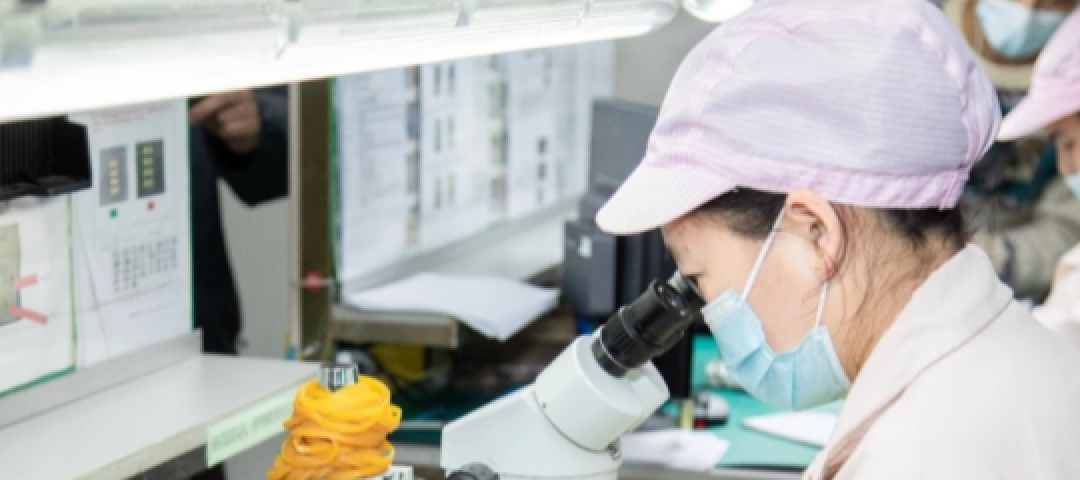Application of MES Systems in PCBA Factories
With the advancement of Industry 4.0 and the rapid development of intelligent

In the PCBA (Printed Circuit Board Assembly) manufacturing process, quality is one of the most critical concerns for customers. Ensuring high product quality not only improves customer satisfaction but also reduces the costs of rework and repair. To achieve this, many PCBA factories have implemented full-process quality monitoring systems to enforce strict control at every production stage. This article will analyze the key elements of a full-process quality monitoring system in PCBA factories and explain how it ensures product quality.
1. What is a Full-Process Quality Monitoring System?
(1)Definition and Function
A full-process quality monitoring system integrates multiple monitoring, evaluation, and feedback mechanisms to control every step of the PCBA manufacturing process. This system covers the entire process, from raw material inspection and production process control to final product testing, ensuring each stage meets predetermined quality standards.
(2)Why is it Crucial?
Every step in PCBA manufacturing can impact the performance of the final product. A full-process quality monitoring system employs rigorous standards to promptly identify and rectify deviations, minimizing the production of defective products and thereby improving efficiency and product quality.
2. Key Stages of Quality Monitoring
a. Raw Material Inspection
The first step in PCBA manufacturing is inspecting the quality of raw materials, such as PCB substrates, components, and solder. Thorough testing and screening of these materials help prevent the use of non-compliant materials, controlling quality risks at the source.
b. Quality Control During Production
During production, various manufacturing equipment, soldering processes, and assembly steps are meticulously monitored. Full-process quality monitoring systems utilize automated detection equipment and real-time data analysis to inspect solder joint quality, component accuracy, and assembly consistency. If anomalies are detected, the system immediately issues alerts and takes corrective actions to prevent the problem from spreading.
c. Finished Product Testing
The final stage in PCBA manufacturing involves comprehensive functional testing and reliability checks on the finished products. This typically includes electrical testing, functional testing, and environmental stress testing. This step ensures that each product meets customer requirements and exhibits strong stability and durability.
3. Applications of Automation and Intelligence in Quality Monitoring
(1) Automated Testing Equipment
As PCBA factories transition toward smart manufacturing, many are adopting automated testing equipment. These devices can quickly and accurately identify defects such as poor soldering or misplaced components. Compared to traditional manual inspection, automated equipment offers higher efficiency and precision.
(2) Big Data and Real-Time Analysis
The application of big data analysis in PCBA manufacturing is also becoming increasingly prevalent. By collecting and analyzing data from the production process, factories can monitor every detail of the production line in real time, predict potential quality issues, and adjust production parameters as needed. This preventative monitoring significantly enhances quality control effectiveness and reduces defective products.
4. How Quality Monitoring Systems Improve PCBA Manufacturing
(1) Enhancing Product Consistency
Through a full-process quality monitoring system, PCBA factories can ensure that every batch of products meets the same quality standards. This improves product consistency and reduces instances of defective products caused by individual flaws.
(2) Reducing Rework and Repair Costs
The system's timely feedback capabilities allow for early intervention when issues arise, preventing large-scale rework. This not only reduces operational costs but also increases customer satisfaction.
(3) Building Customer Trust
When customers know that a PCBA factory employs an advanced full-process quality monitoring system, they are more confident in the quality of the products delivered. This fosters long-term partnerships and increases customer loyalty.
5. Continuous Improvement: The Future of Quality Monitoring Systems
a. Popularization of Intelligent Monitoring Systems
With the advancement of artificial intelligence and IoT technologies, future PCBA factories will increasingly rely on intelligent quality monitoring systems. These systems will automatically learn and adapt to changes in production, continuously optimizing processes to improve efficiency and quality control.
b. From Reactive to Proactive Quality Management
Future quality monitoring systems will shift from traditional reactive monitoring to proactive prediction and prevention. This transformation will make quality control in the PCBA manufacturing process more precise and effective, further reducing defects.
Conclusion
Full-process quality monitoring systems are essential tools for ensuring product quality in PCBA manufacturing. By rigorously controlling every stage, from raw material inspection to final product testing, and integrating automation and intelligent technologies, PCBA factories can significantly improve efficiency, reduce rework rates, and build customer trust. In the future, as technology advances, these systems will become even more intelligent, driving further innovation and transformation in the PCBA industry.
16+ years experience and 300+ engineers working with overseas projects
ISO9001:2015, ISO14001, ISO13485, ROHS, and UL
designing, engineering, prototyping, and production and after-sales services
Covered 150+ countries and 3600+ customers
Reply to your inquiry within 1 hours, we provide 7/24 hours support for customers in different time zones
SMT lines+Automatic plug-in production line+Wave Soldingave Lines+Assembly lines